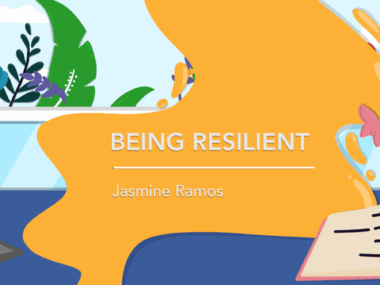Giving Up Isn’t a Personal Failure
Written by |

When it comes to new wheelchairs, I’ve been known to drag my feet.
My parents love to tell the story of how my last chair sat in our basement library for a year after I got it. In my defense, I was in the midst of a major depressive episode at the time. Considering the emotional toll of transitioning between wheelchairs, it’s no surprise that I put it off as long as I could — I was barely keeping my head above water as it was.
So, yes, the chair sat in the dark for a good 12 months. When I finally got around to switching, the seating was so uncomfortable that I had to dissect my old chair. The headrest, the armrests — my assistive technology professional (ATP) had the nigh-impossible job of merging the two chairs. But he did, and I loved it to death. Literally.
As I write this column, typing on my phone in the waiting room of my local clinic, my old chair is barely keeping it together. The base is covered in a moderately thick layer of dust. The armrests are zip-tied to the originals, creating a kind of hunchback vibe. The elevator, while functional, is ridiculously squeaky. As much as I love this wheelchair, I can’t postpone the inevitable.
I jumped into the transition with both feet, to the surprise of my parents. I was ready for a change. And it didn’t hurt matters that I had a deadline — ideally, I would be in the new chair full time by mid-June, when my parents and I will drive to Anaheim, California, for this year’s Annual SMA Conference. That gave me four months to complete the transition.
Four months. It felt doable.
There were the usual issues. My body was used to the old chair, with all its idiosyncrasies. The new chair, while streamlined, had a learning curve all its own. The headrest wasn’t giving me the support I needed, and the wheelchair programming required an overhaul. But as I wrote in a previous column, the changes were relatively small compared with other transitions. I was feeling uncharacteristically positive.
Then I went into the new chair full time.
Small issues became big problems. The headrest was so wobbly that riding in the car was a hazard — my head looked like a bobblehead toy. The wheelchair was so slow and hard to maneuver that I struggled to navigate my fully accessible home.
The seating was a whole other can of worms. While my choice to experiment with a new kind of seating didn’t exactly backfire, there were issues that couldn’t be solved with a piece of foam or a strategically placed washcloth. My right shoulder blade was uncomfortable to the point of pain. And the worst part? I couldn’t get in to see my ATP until April 11.
We solved the bobblehead conundrum by switching headrests; the programming, while debilitating, would get addressed eventually. It was my shoulder that posed a problem.
My shoulder, and my increasingly sore right side.
I’m old friends with chronic pain. I’ve learned to take the bad days as they come and to savor the good days — the pain-free days — for all they’re worth. But it didn’t take long for the pain of my new chair to wear me down. I was determined to stick it out, as I didn’t have many other options. But each day brought me a little closer to my breaking point.
To put it plainly, I was miserable.
Finally, my dad had enough. “Brianna, I think we should switch chairs for the time being.”
I was reluctant. To my surprise, I’d grown accustomed to the new chair and didn’t want to go through that process all over again. But the pain was getting unbearable, and as my dad so wisely said, I have enough to deal with.
So I gave up. I swapped headrests and moved my phone holder from the new chair to the old one. I grabbed my backpack, my scrunchie, and my collection of KN95 masks and was off to the races.
I would be lying if I said it didn’t feel like failure. I was so ready to switch chairs and was frustrated when the transition stalled. But my dad is right: I have enough to deal with. I don’t need to suffer out of some misguided attempt at persistence.
April 11 will be here soon enough. Until then, I’ll wait, pain-free and a little less miserable.
Thanks for reading! You can follow me on Twitter and Instagram, subscribe to my newsletter, or support me on Ko-fi.
Note: SMA News Today is strictly a news and information website about the disease. It does not provide medical advice, diagnosis, or treatment. This content is not intended to be a substitute for professional medical advice, diagnosis, or treatment. Always seek the advice of your physician or other qualified health provider with any questions you may have regarding a medical condition. Never disregard professional medical advice or delay in seeking it because of something you have read on this website. The opinions expressed in this column are not those of SMA News Today or its parent company, Bionews, and are intended to spark discussion about issues pertaining to spinal muscular atrophy.





Blake Watson
I feel this. Switching wheelchairs is often a literal pain in the ass. I had one that I really liked and I used it for eight years until it finally died. I feel like I haven’t had a suitable wheelchair since.
I often fantasize about really wild options that are completely unrealistic but that I naively speculate would be awesome, like being suspended in a hot tub on wheels, or living out my life on the International Space Station. Ugh, gravity sucks.